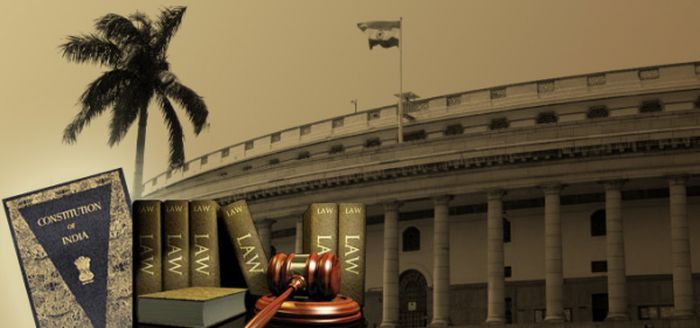UPSC aspirants looking for a good rank must focus on Indian Polity from the start of their preparation. It is the subject which is crucial for pre and mains both. That is why, before appearing for the UPSC CSE prelims, an aspirant needs to build a solid foundation in polity and governance. How to do it? An IAS officer, who always got 90 percent plus questions correct in prelims paper in polity, tells you how.
2017-batch IAS officer, who isthe CEO Zila Parishad of Jalna district in Maharashtra, Mr. Manuj Shashi Jindal, shared his tips for Indian Polity in a Twitter thread. We present the thread for the benefit of all CSE aspirants.
BASICS
Mr. Jindal starts his thread by tweeting: “Polity is probably the most important subject for UPSC. Good numbers of questions from polity come both in prelims and mains. It is also highly scoring. I always tried to get 90% plus questions correct from the polity section in prelims. A 4 page thread to absolutely master Polity.”
He then talks about the basics of Indian polity and suggests when and how to start preparation.
“Basics: Sources, when to start, how much time to dedicate, how prelims Qs are different from Mains and what’s the importance of mocks and PYQs.”
Then, in a hand-written page that he attached, he guides on devising a preparation strategy for the subject from prelims to mains. He wrote about how much time to dedicate to this subject and the importance of mocks and previous year’s question papers. He also recommends studying the NCERT class 10 book called ‘Constitution at Work.’ Along with this, he also suggests the book, Indian Polity, by Laxmikanth, and also his own set of notes.
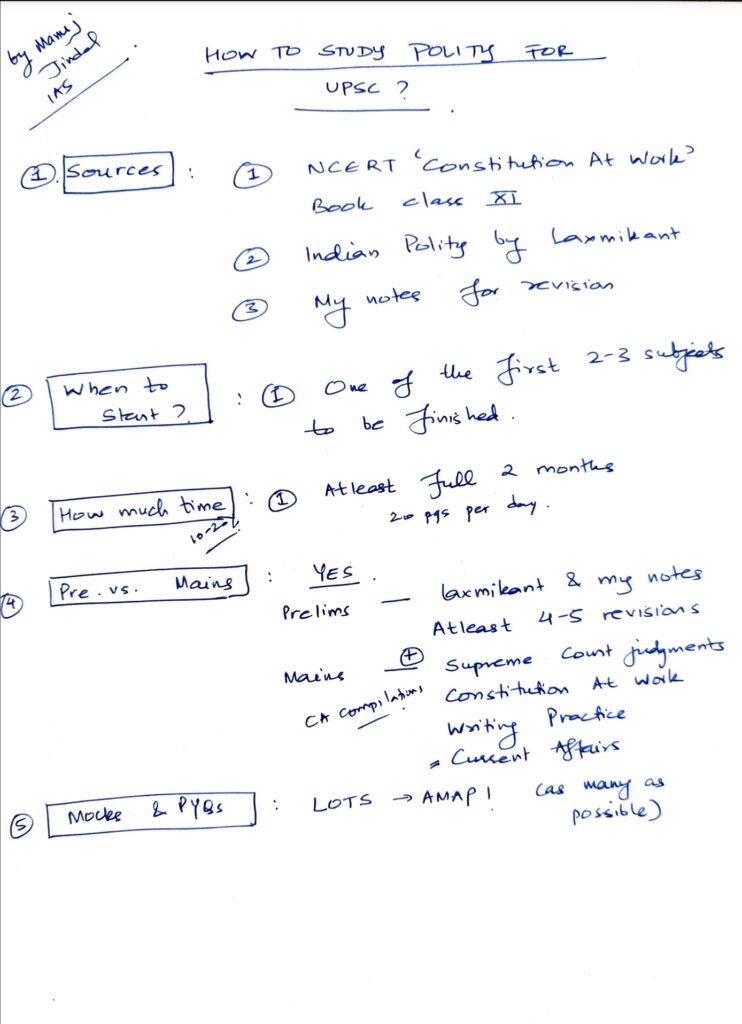
1. Basics:
— Manuj Jindal (@manujjindalIAS) September 24, 2022
Sources, when to start, how much time to dedicate, how prelims Qs are different from Mains and what's the importance of mocks and PYQs pic.twitter.com/XTrJPx6sUN
INDIAN POLITY BOOK BY LAXMIKANTH
In his second tweet, he discusses about how an aspirant should read the polity book by Laxmikanth. He tweets: “How to read and master Laxmikanth:
Note: don’t read it chronologically but in this order I suggest.
It will be more contextual when you read like this, and easier to even remember and understand…”
Then, he attaches a hand-written page, where he recommends not to go chronologically but follow his method of study instead.
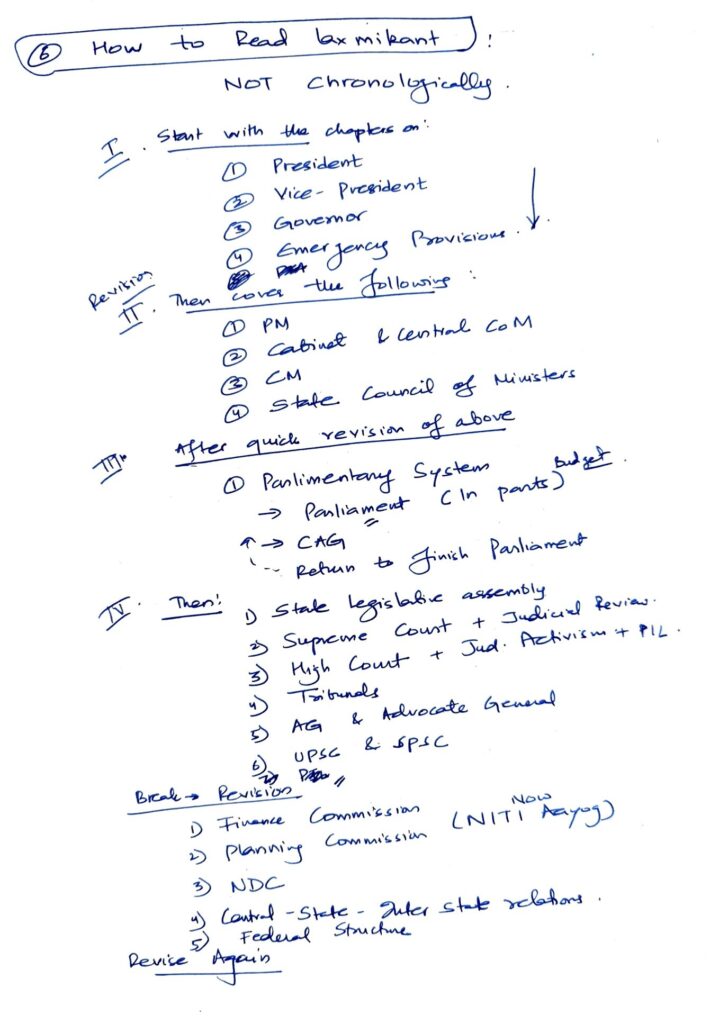
READING OF LAXMIKANTH, AREA TO FOCUS
In his third tweet, he describes how an aspirant should focus on important topics in Polity and what are these topics. He writes: “How to read Laxmikanth continued. Historical background and making of the constitution which are the first chapters should be read last!”
Then, in a hand-written page, he sheds light on some important topics that aspirants must read from the starting of the preparation. These include Election,Citizenship, National Commissions, Fundamental rights, understanding the structure of our political system, constitutional dimensions and Supreme Court judgments.
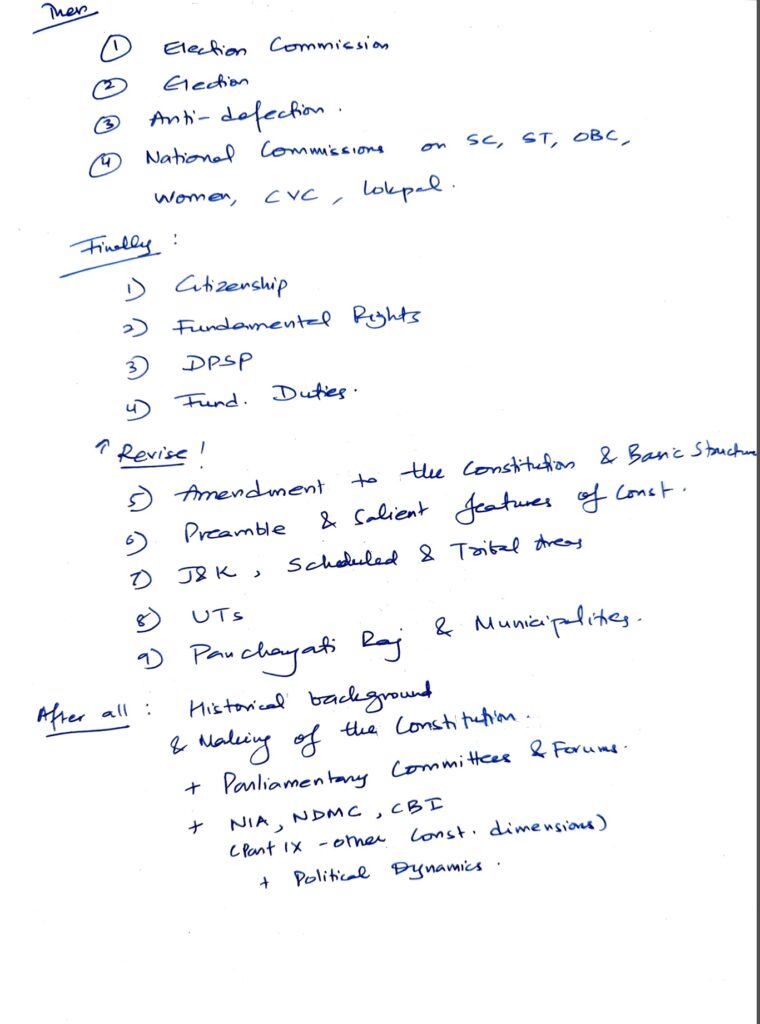
ANSWER WRITING & NCERT
In his fourth tweet, he talks about some key focus areas and answer writing. After preparing well, aspirants must learn how to write the answers. In a hand-written page, he then sheds light on the importance of NCERT’s Indian Constitution at Work. He covershere some of the important areas that an aspirant must cover.
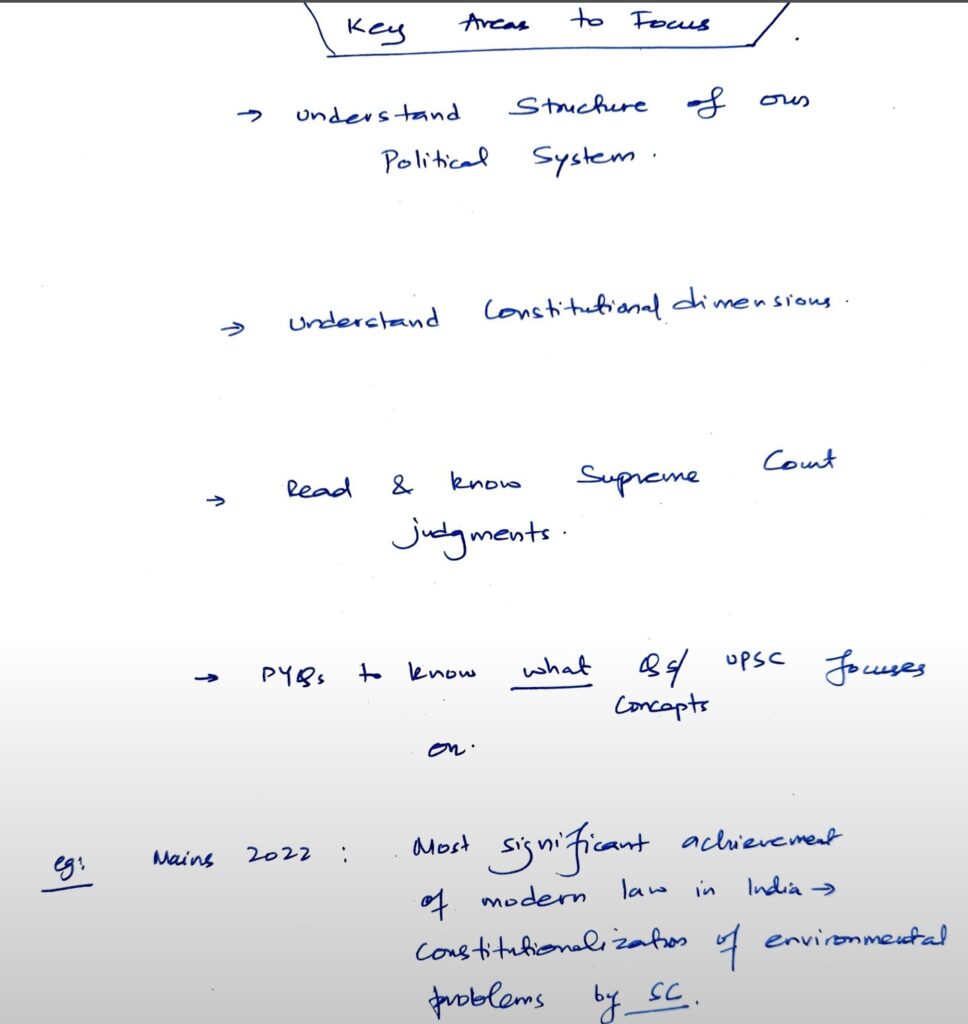
He concludes with: “Finally, don’t forget reading the gem of a book that is ‘Constitution at Work’ — NCERT class XI text before reading Laxmikanth. It will really set your fundamentals straight on polity!”
“Only after reading this book, go to Laxmikanth…”
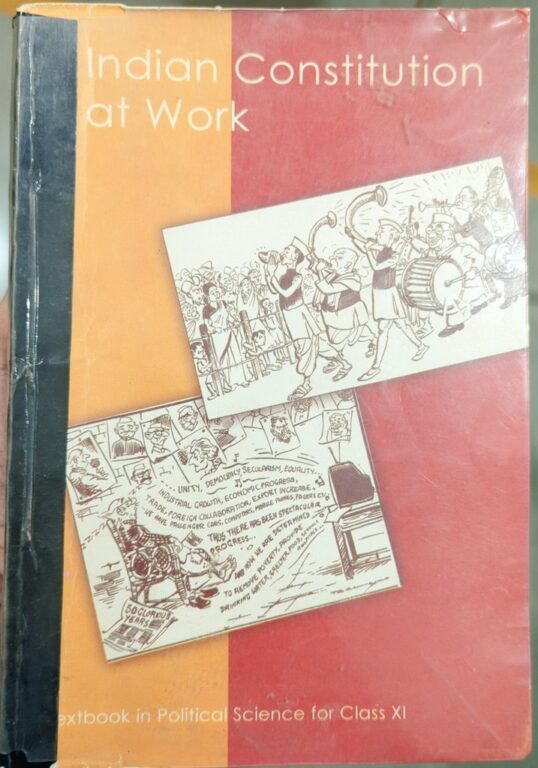
5. Finally, don't forget reading the gem of a book that is 'Constitution at Work' — NCERT class XI text before reading Laxmikanth.
— Manuj Jindal (@manujjindalIAS) September 24, 2022
It will really set your fundamentals straight on polity!
Only after reading this book go to Laxmikanth… pic.twitter.com/dNtpVR9KQJ

